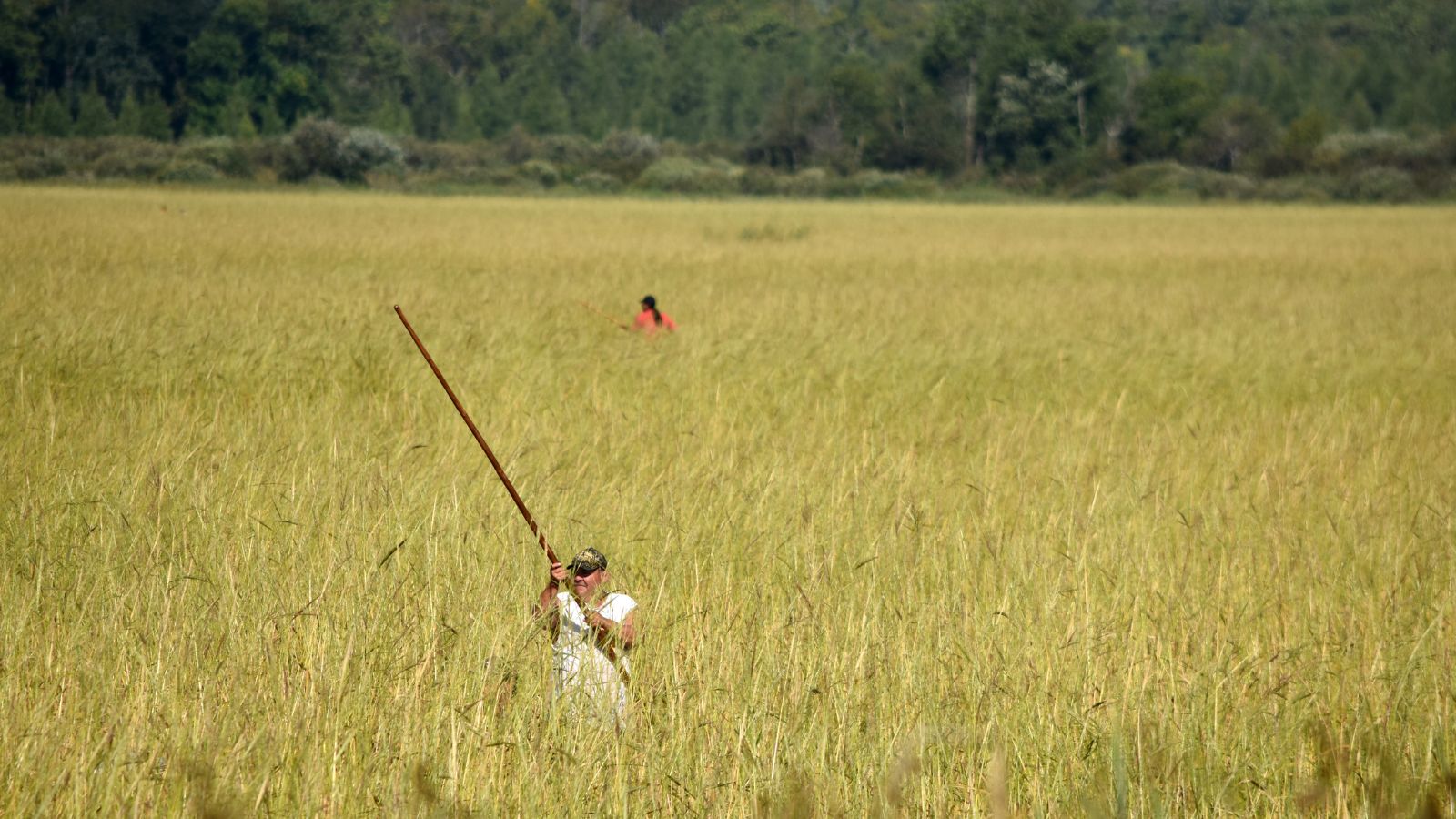For hundreds of years, Ojibwe people have harvested wild rice in the lakes and rivers of the Upper Midwest. They migrated there in search of a place — foretold by Anishinaabe prophecy — where food grows on water.
“Wild rice is an aquatic grass, and so it grows in the water, and we harvest it with our canoes,” says Jerry Jondreau.
Jondreau and his partner Katy Bresette own Dynamite Hill Farms. The Michigan-based business produces wild rice, maple sugar, and other traditional Ojibwe foods.
Each fall, Jondreau travels to Minnesota to harvest rice. But last year, spring storms and floods damaged seed beds.
“A lot of the tribes had actually closed all of their ricing lakes and rivers because it was so spotty,” he says.
But the previous year, drought interfered with the harvest.
“When there’s a severe drought going on, it’s really difficult to get the canoes into the lake or the waterways,” he says. “And then if you’re successful in getting the canoe in the waterway, your canoes bottom out.”
As the climate warms, both increasingly severe droughts and more heavy rain are expected in the region.
So it’s getting harder to maintain a tradition that has been central to Ojibwe culture for generations.
Read: By paying attention, tribes in the Northwoods are leading the way on climate change
Reporting credit: Sarah Kennedy/ChavoBart Digital Media


